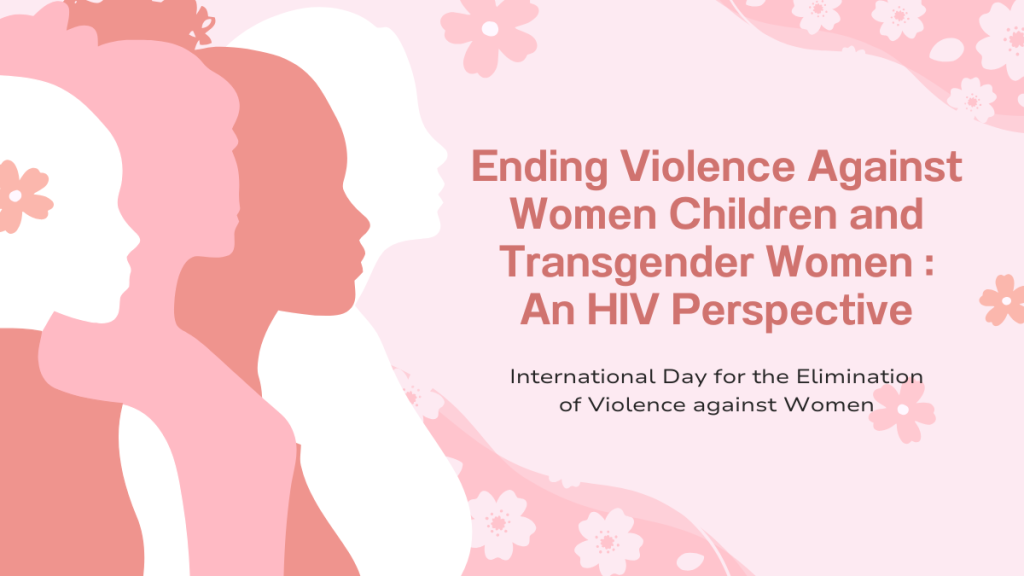Violence against women, children, and transgender women is a complex and sensitive social issue that profoundly impacts the health, well-being, and quality of life of individuals. Particularly when viewed in the context of HIV infection, this problem not only constitutes a violation of fundamental human rights but also serves as a significant barrier to social development and gender equality.
November 25: International Day for the Elimination of Violence Against Women – Building a Society Intolerant of Violence
Every year, November 25 is observed as the International Day for the Elimination of Violence Against Women, an important opportunity to raise awareness about violence against women, children, and transgender women worldwide. This violence manifests in many forms, including physical and psychological abuse, human rights violations, and harassment in families, communities, and even online spaces.
While this issue is not new, it remains a persistent problem rooted in societal inequalities and deeply ingrained values. Addressing this challenge requires collective action, fostering awareness, and implementing solutions to pave the way for a sustainable and equitable society.

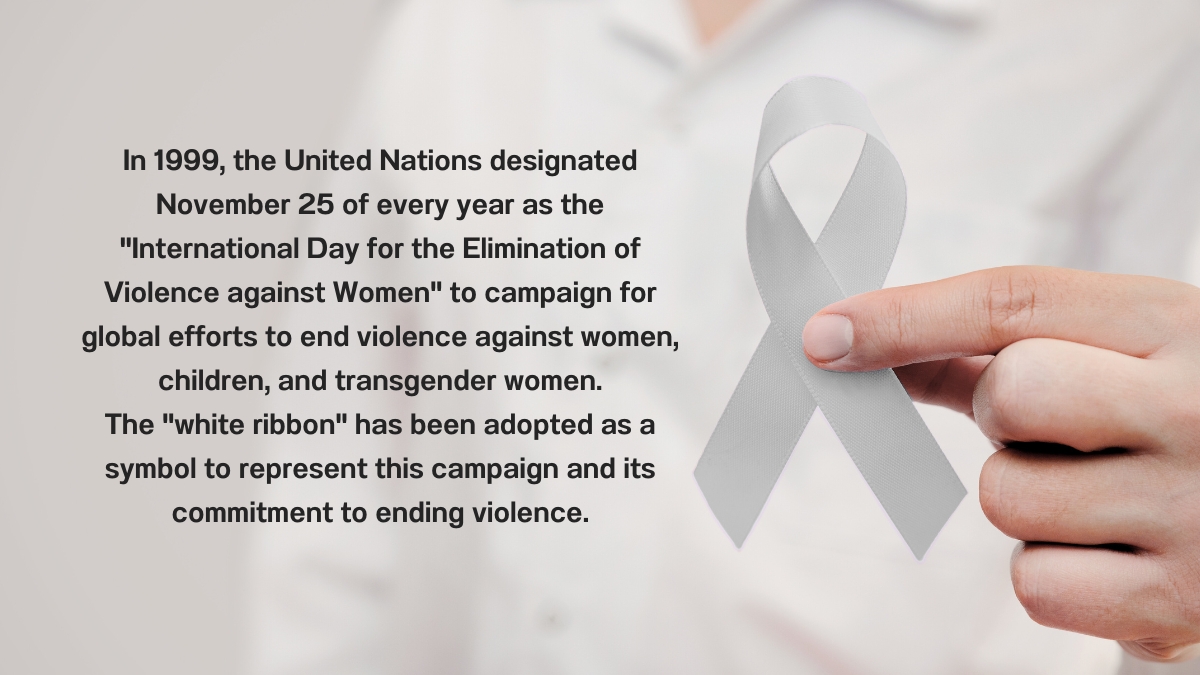
Background of the International Day for the Elimination of Violence Against Women
The International Day for the Elimination of Violence Against Women originated in 1981, initiated by women’s rights activists to honor the memory of the Mirabal sisters—Patria, Minerva, and María Teresa Mirabal. These Dominican activists were assassinated in 1960 under the orders of dictator Rafael Trujillo. Their tragic deaths became a powerful catalyst, drawing global attention to gender-based violence and inspiring collective action to address the issue.
To symbolize solidarity and commitment, the White Ribbon was adopted as the emblem of this day, representing a call for everyone to neither tolerate nor commit violence against women, children, and vulnerable groups. This movement extends beyond November 25, encompassing the 16 Days of Activism against Gender-Based Violence, a global campaign running until December 10, which coincides with Human Rights Day.
Statistics and the Situation in Thailand
According to data from the Thai Health Promotion Foundation, violence against women, children, and transgender women in Thailand affects approximately 30,000 individuals annually, with most cases involving perpetrators who are close to the victims, such as partners or family members.
Key Findings
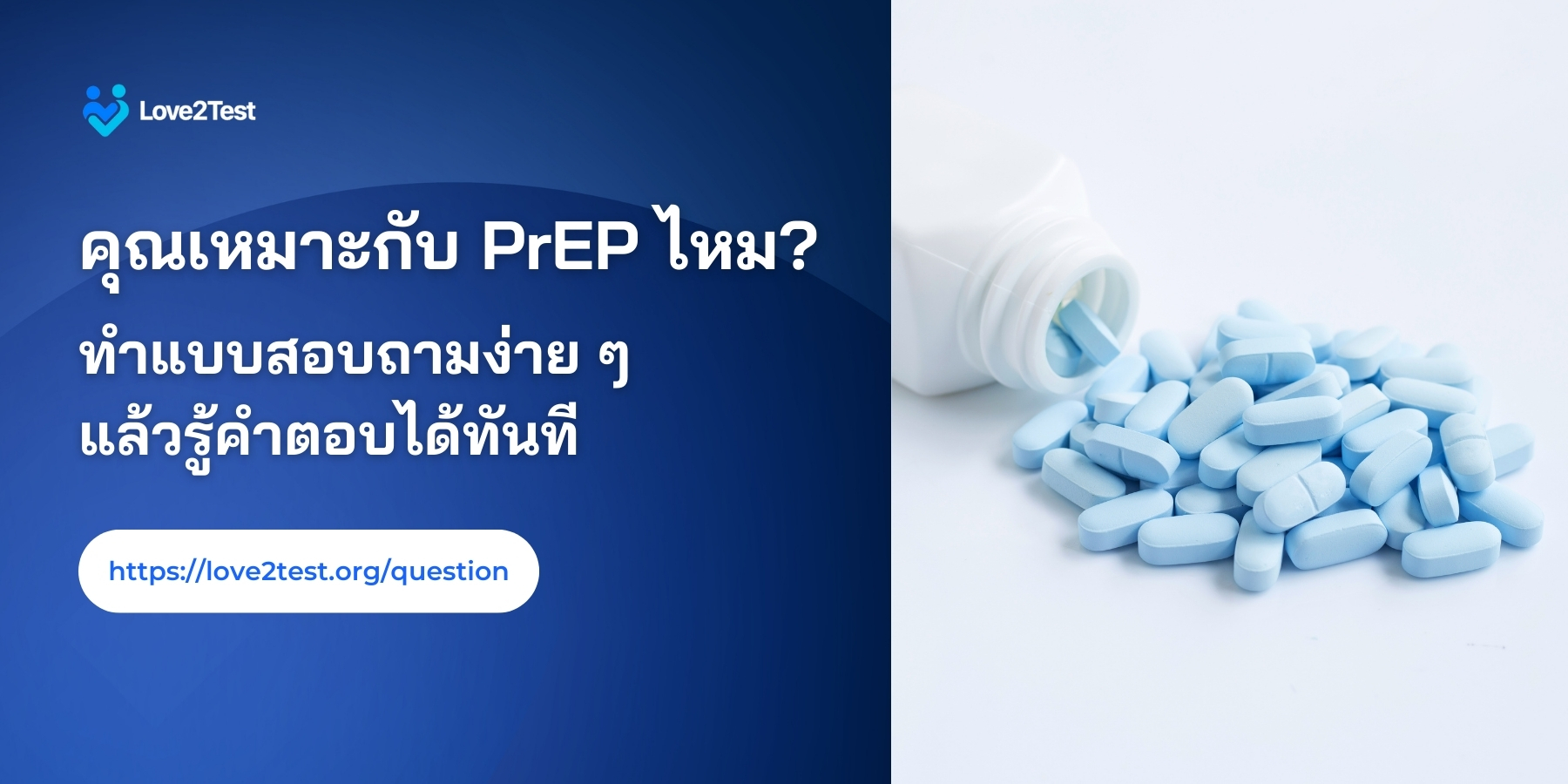
- Domestic Violence: The most common setting for violence against women is within the family. Root causes include patriarchal societal norms, misguided beliefs about women’s roles (e.g., the expectation to endure hardships), substance abuse, and alcohol intoxication.
- Prevalence of Domestic Incidents: over 5,000 cases of domestic violence are reported each year.
- Sexual Violence: approximately 30% of women have experienced sexual violence.
- Vulnerability of Transgender Women: Transgender women are at a threefold higher risk of experiencing violence compared to the general population.
This data underscores the urgent need for societal reform, public education, and comprehensive measures to combat gender-based violence in all its forms.
In 2024, a total of 92,739 people received services from the One-Stop Crisis Center, with an average of 42 cases of abuse per day. Among them, 11,112 were females aged 10-20 years.
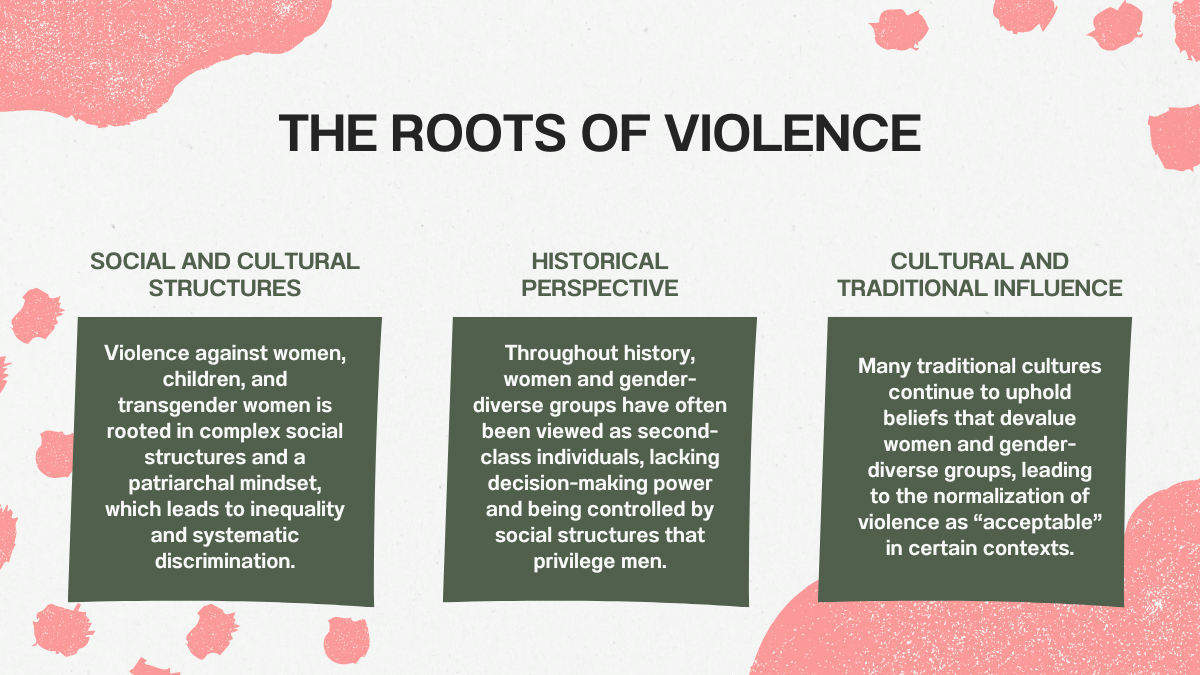
The roots of violence
Social and cultural structures
Violence against women, children, and transgender women is rooted in complex social structures and a patriarchal mindset, which leads to inequality and systematic discrimination.
Historical perspective
Throughout history, women and gender-diverse groups have often been viewed as second-class individuals, lacking decision-making power and being controlled by social structures that privilege men.
Cultural and traditional influence
Many traditional cultures continue to uphold beliefs that devalue women and gender-diverse groups, leading to the normalization of violence as “acceptable” in certain contexts.
Forms of Violence
According to the World Health Organization (WHO), violence is divided into three main types:
1. Physical and Psychological Violence
- Physical violence: Actions that cause bodily harm, such as slapping, hitting, kicking, assault with weapons, or coercion that causes physical pain. Repeated instances of physical violence can sometimes lead to death.
- Psychological violence: Actions or words intended to harm someone’s mental state, such as verbal abuse, dehumanization, threats, or creating fear. This often has long-term effects, such as the development of depression, anxiety, or a loss of self-confidence.
Examples
☞ A partner using physical force against the other, such as slapping or threatening harm if commands are not obeyed.
☞ Blaming or criticizing someone in a way that makes the victim feel worthless.
Evaluate your depression here: www.love2test.org/depression
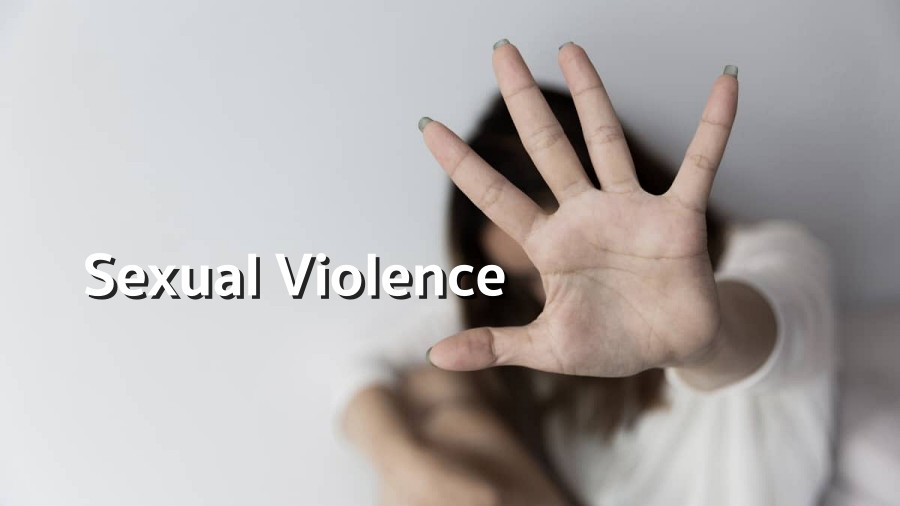
2. Sexual Violence
Sexual violence refers to any act that involves sexual assault or coercion without the consent of the other party. This includes rape, non-consensual physical contact, sexual harassment through words, inappropriate sexual behaviors, and harassment in the workplace or online. Examples include being forced into sexual activity in exchange for career advancement or receiving obscene messages or images.
Examples
☞ A woman being forced into sexual activity by a partner or someone close to her, even within a relationship.
☞ Receiving unsolicited sexually explicit images or messages.
3. Neglect or Abandonment
Neglect in families or relationships occurs when one disregards the basic needs of the other, such as failing to care for their physical or mental health, or neglecting to provide essential needs like food, water, or shelter. Women, children, and the elderly are often vulnerable to neglect. For example, leaving elderly people without care or forcing children to fend for themselves. The effects of neglect may not be immediate, but they can have long-term consequences, such as malnutrition, illness, or the development of depression and isolation.
Examples
☞ A child not receiving health care or opportunities for education.
☞ A partner who neglects the other’s feelings or leaves them to bear responsibilities alone.
The Link Between Violence and HIV
The Cycle of Vulnerability Related to Violence Against Women
Violence and HIV are intricately linked. Women, children, and transgender women who experience violence are at a significantly higher risk of contracting HIV due to the following factors:
| Sexual Abuse: Being coerced or forced into sex without consent greatly increases the risk of HIV transmission. |
| Lack of Negotiating Power: Women, children, and transgender women who experience violence often cannot negotiate the use of condoms or other protection against sexually transmitted infections. |
| Innocence: Children and youth who are victims of abuse have a higher likelihood of contracting HIV from their abusers. |
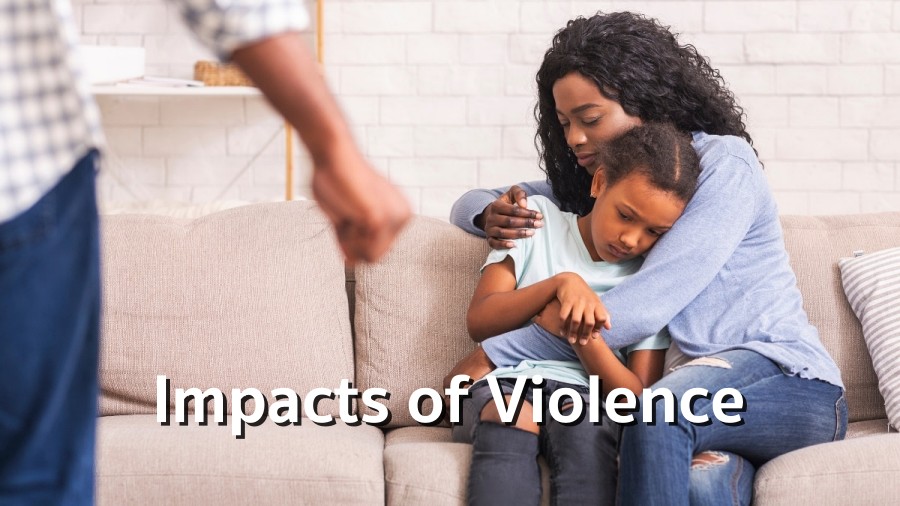
Impacts of Violence
Violence affects not only the physical and mental well-being of victims but also extends its consequences to families, society, and the economy.
- Impacts on Individuals
- Mental health issues, such as depression or PTSD.
- Loss of self-confidence and the ability to live independently.
- Impacts on Families
- Creates an atmosphere of fear and mistrust.
- Children in such families may grow up with emotional and behavioral problems.
- Impacts on Society
- A society rife with violence lacks mutual trust.
- Violence leads to inequality and hinders sustainable development.
Pathways to Addressing Violence Against Women
Addressing violence against women requires collaboration from all sectors of society.
- Raising Awareness
- Promote understanding of human rights and gender equality.
- Utilize social media to disseminate information and encourage participation in awareness campaigns.
- Supporting Victims
- Establish accessible and safe support centers for victims.
- Provide psychological counseling and legal assistance.
- Challenging Harmful Norms
- Instill new values that promote equality.
- Encourage non-violent parenting practices.
- Strict Law Enforcement
- Update laws related to domestic violence.
- Impose fair and decisive penalties on perpetrators of violence.
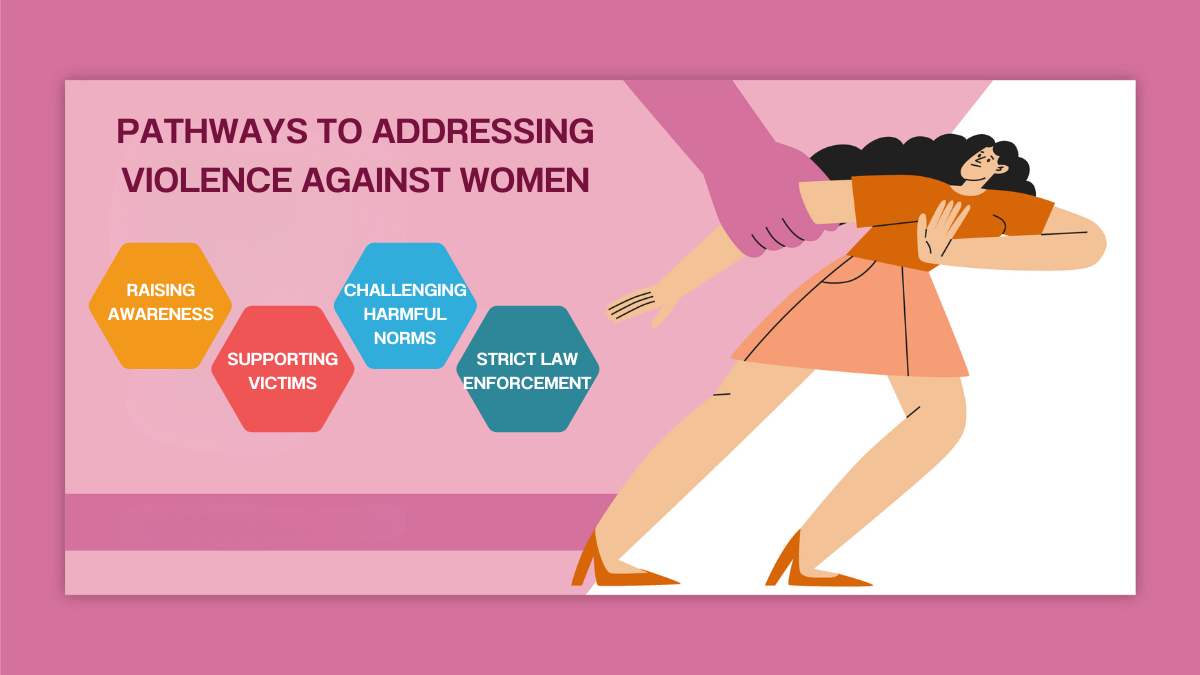
Role of the General Public
As members of society, everyone can contribute to ending violence by not ignoring it when witnessed and supporting those affected.
What You Can Do
- Report incidents of violence immediately to relevant authorities.
- Support campaigns to end violence, such as participating in events for the International Day for the Elimination of Violence Against Women.
Support Services
- Paveena Foundation for Children and Women: Call 1134 or 02-521-9231-2
- Friends of Women Foundation: Call 02-513-2780, 02-513-1001
- Social Assistance Hotline: Call 1300
- Baan Sameau: Offers counseling and assistance for people living with HIV, drug users, and families facing discrimination or human rights violations. Provides free legal advice and representation by expert legal teams and lawyers.
Related Articles
- HIV and Mental Health : Understanding the Connection and Coping Strategies
- HIV and Human Rights: Advocacy and Action
Let’s work together to create a better future. The International Day for the Elimination of Violence against Women is more than just a date on the calendar—it is a powerful reminder of the urgent need for all of us to collaborate in building a just, safe society where everyone can thrive with dignity. If you start taking action today, the world of tomorrow will undoubtedly be a better place.
Reference:
End Violence against Women
- un.org/en/observances/ending-violence-against-women-day
25 พฤศจิกายน วันยุติความรุนแรงต่อสตรีสากล หยุดการทำร้ายผู้หญิง
- iao.bangkok.go.th/content-detail/10510
นายกปลุกแสดงพลัง! ยุติความรุนแรงต่อคนในครอบครัว
- naewna.com/politic/843435
